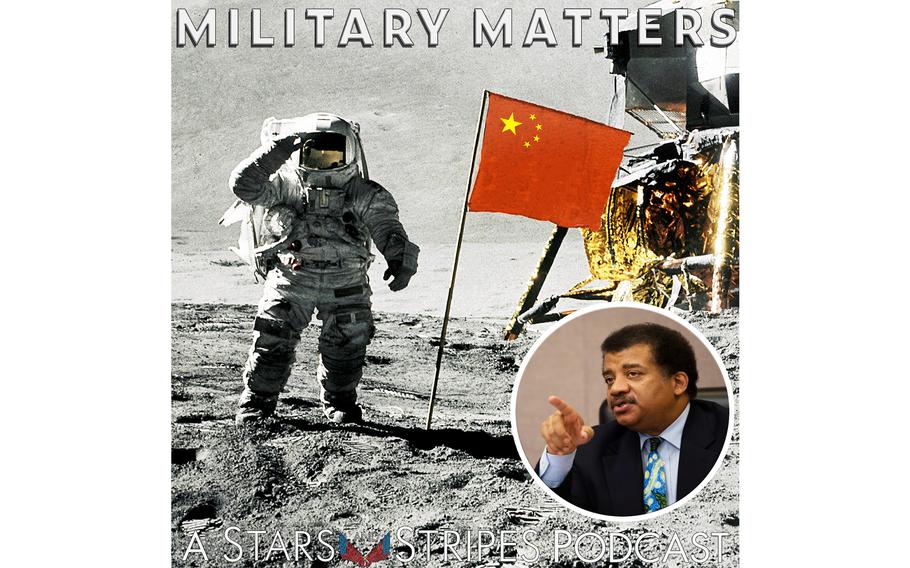
(Stars and Stripes)
Throughout world history, science and defense have gone hand in hand, with each discipline pushing the other to new advances. With the U.S. getting ready to visit the moon for the first time since 1972, now seems like a good time to examine this relationship as it pertains to the final frontier.
In the Season 7 premiere of Military Matters, host Rod Rodriguez speaks with astrophysicist, author, podcast host and science educator Neil deGrasse Tyson about the intersection of astrophysics and defense. Tyson covered the topic extensively in his 2018 book, “Accessory to War: The Unspoken Alliance Between Astrophysics and the Military,” coauthored with longtime editor and researcher Avis Lang.
“If I were to distill what a physicist does, a physicist is an expert in matter, motion and energy,” Tyson said. “… And a military operation, again, if I may distill it into one sentence, and I think if you think about it, this is true. All right? It's, I have energy over here, and I want to put it over there. I don't know any military operation that isn't that. OK, I have energy over here, and it could be a bullet. All right? The bullet has gunpowder or whatever is the propulsive material. And I have it over here, and I want to put it over there.”
Tyson brought up British explorer, Captain James Cook, who in 1769 observed the transit of the planet Venus in the night sky while on a mission around the world.
“Take a look at the timelines in history, OK? Take a look at when he observed that Venus transit,” Tyson said. “Then look at how quickly England took control over all manner of island states in the area, including when they started shipping prisoners to Australia. To this day, many of those flags still have the Union Jack on it. It's because of Captain Cook and his ability to measure, and he was empowered by the navigators who were fundamentally astronomers of the day to accurately map (locations) so that you can return.”
With NASA preparing to return Americans to the moon in the near future, Tyson pointed out the similarities with Cook’s mission and its effect on military conquest.
“We’re going back to the moon with a civilian space agency, but it's a way of saying, yeah, this is cislunar space and we still know how to be there,” Tyson said. “In the same way the Cook mission was not military per se, it was an expedition, an exploration expedition, but it had military consequences. So this is us trying to reclaim cislunar space for whatever value it may have in the future, even a value that we might not foresee today.”
You can find Military Matters on Twitter @stripesmmpod.
Follow Jack Murphy on Twitter @jackmurphyrgr and Rod Rodriguez @rodpodrod.
A transcript of the episode can be found here.
Go to www.stripes.com, use promo code PODCAST and save 50% on your digital subscription.